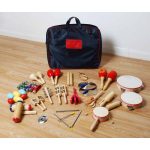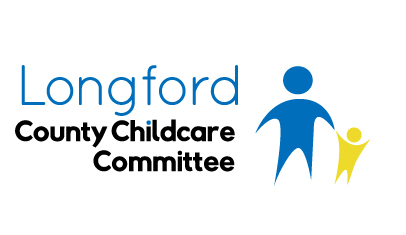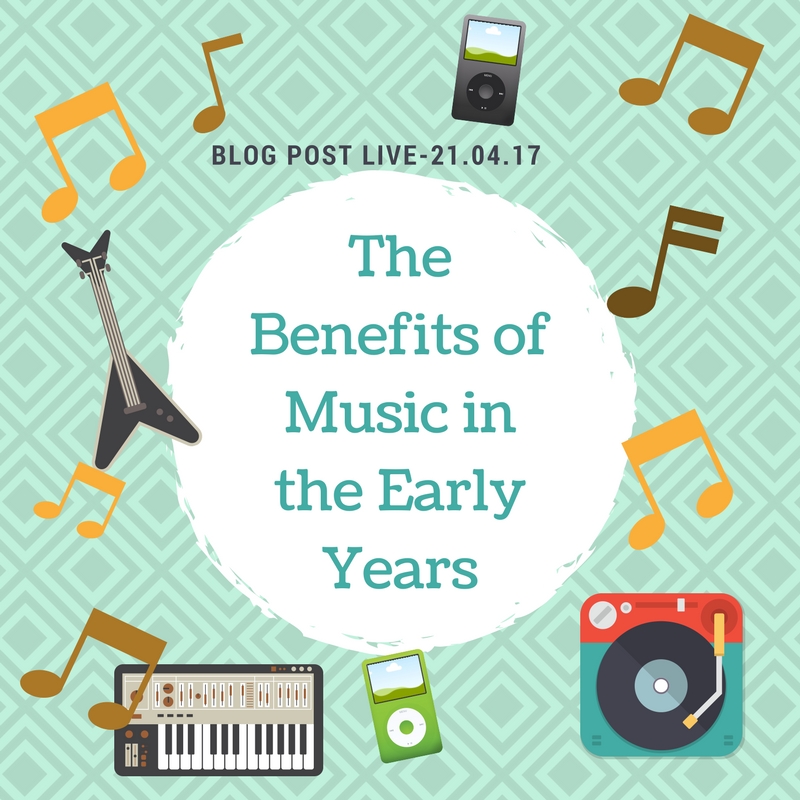The Benefits of Music in the Early Years
Music is a great benefit to the Early Years, it allows us to cater to so much learning and development for the child. It supports children develop social and communication skills, acquire self discipline, awareness and tolerance and build self esteem. Music also impacts on literacy and numeracy skills and can help children find their signing voice. As Early Years Professionals, supporting music in the early years is such a great way of achieving this.
Music has always been recognised in Early Years Education as being important. Many early theorists/philosophers could see the benefit, Friedrich Froebel being one such, who seen the value of different sounds and saw these as the means to creative expression. ‘He developed songs and rhymes for young children, which he called ‘Mother Songs’.(Pound, 2008). Froebel wasn’t alone, Rudolf Steiner, also saw the benefit, where “a system of movement with language and music is characteristic of Steiner approaches’ (Pound, 2008).
Music in the early years
To children, or indeed adults, music is a universal language, it transcends age or language. Music allows children to express themselves freely. Children whose first language is not English, music can allow the child to mix within their classroom and feel like part of their group. In times of transition, music can be a welcome comforter and can ease a child. Music can be achieved on a minor budget by giving young children pots and pans and wooden spoons, containers with kitchen rice or other objects. Music doesn’t need to be flashy or expensive. Music and dance can be achieved indoors and outdoors so easily and can be introduced to children from day dot, examples for children, how to include music are:
Music in the Baby Room
- For younger babies, socks with rattles, are ideal and can be easily made too. These allow the child to explore his own movement and understand cause and effect (he moves his feet, he hears a sound).
- Simple rattles for hands. Babies get to develop their gross motor skills, whilst learning to listen and it introduces them to rhythm, tone, beat.
- Introduce pots and pans and wooden spoons.
- Treasure box. Include objects that make noise in your treasure box. You could explore this with the babies and see what objects can make noise and those that can’t. If you don’t already have a treasure box, these are generally made of everyday natural objects you would find at home.
- As well as creating some musical objects easily, like plastic bottles with rice inside, you can invest in pieces, www.cleverkids.ie, sell some lovely pieces. They have rain makers, maracas, castanet, small drums, hand bells, xylophones and so on.
- Introduce nursery rhymes and songs in your everyday activities. Children love to hear and become familiar with old favourites such as baa, baa, black sheep, twinkle, twinkle, little star etc.
Music for toddlers up
- Songs and rhymes are a great way to introduce music, they don’t need lots of space and you don’t need a singing voice. You can do songs and rhymes anywhere, on the school trip bus, on the nature walk, indoors, outdoors, on the changing table. Songs and rhymes are great for children’s language, the more they practice singing, the clearer the tunes get and this is great for their language.
- Instruments can be also used at this age, as mentioned cleverkids sell musical packs, starting from €45, these are wooden and I find wooden generally last longer. www.ease.ie also sell packs from €44.95 up to a €189.95 (as below).

- Think about providing dance classes in the service once a week, or fortnight, or even monthly. Children love to explore music via dance, there are so many ballet teachers, Irish Dance, Sean Nos, and Hip Hop, all ways of introducing children to music, rhythm and dance. This can be enjoyable and get them moving physically.
- Does a fellow staff member, or do you know a parent that plays a musical instrument? Could you invite them to class to have a music session?
- Introduce music outdoors, turn the music on, and get children active. I’ve created a Pinterest board for music outdoors, https://www.pinterest.com/longfordCCC/music-ideas-indoor-outdoor/, it shows fun ways of exploring this. Think about asking your parents to bring in old household items or to help you reproduce some of the ideas.
- In light of Coachella just around the corner, one of the largest music festivals in the world, create a Kidchella festival. Let the children create their own arm tags (tickets), let the children wear their own festival attire, create a main stage, supporting stage, perhaps the children will perform on the stages.
- If a child is from a different country/culture, they may like to introduce some of their native music or instruments, perhaps you could get their parent/s to get involved.
- As it is important to listen to music, it is also important to respect the quiet and silence, play the silence game, preferably outside and let the children listen to their surroundings, listen to the birds singing and appreciate it, this is great for children’s mindfulness.

